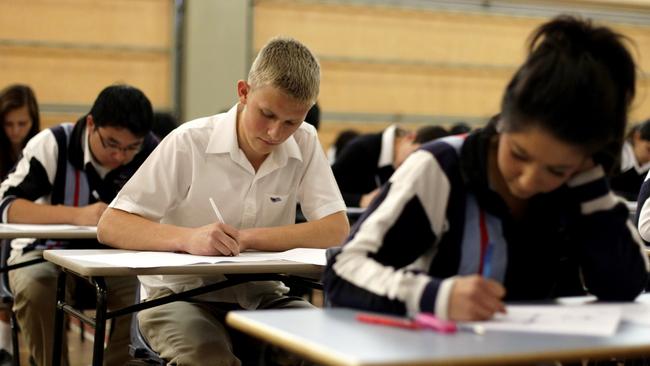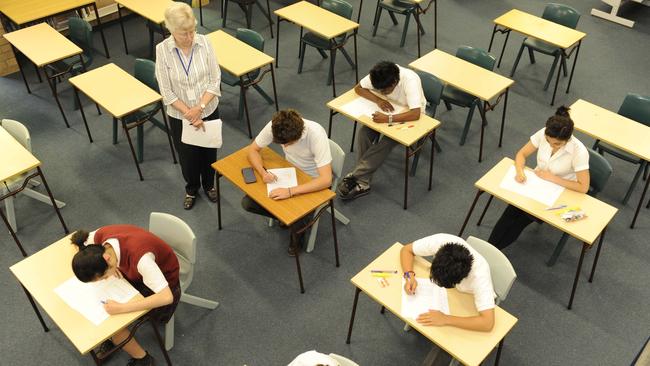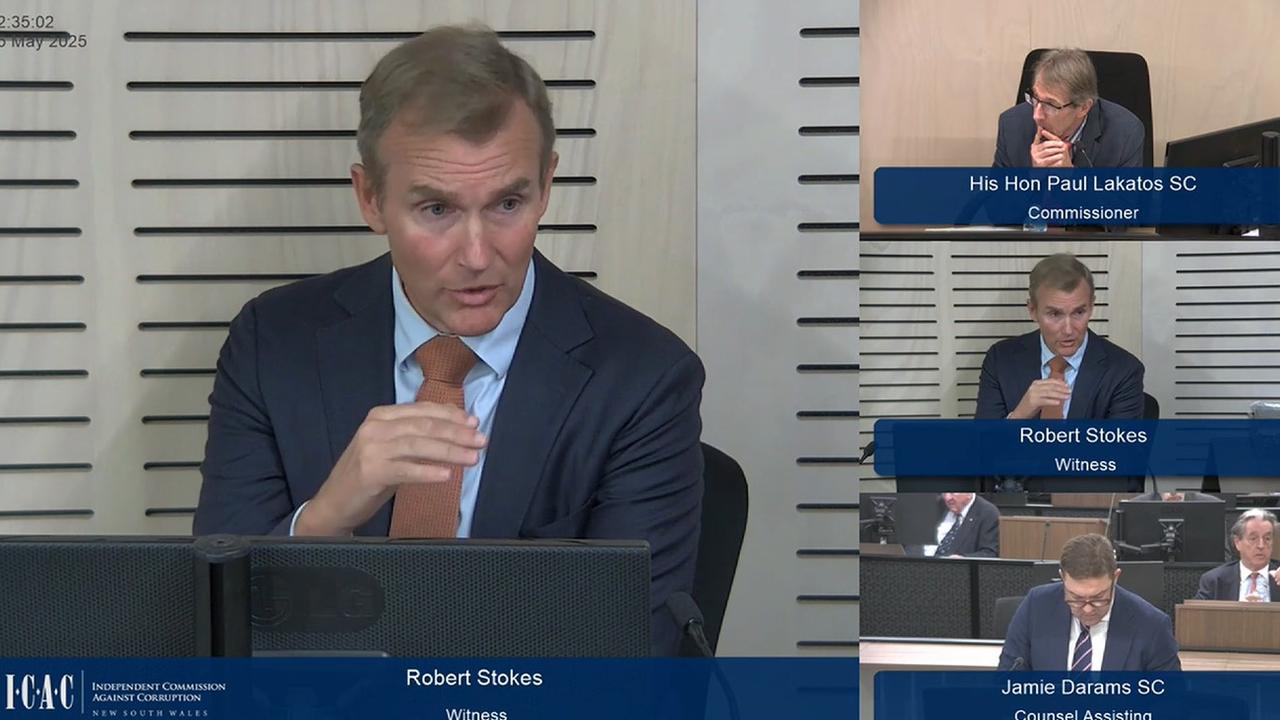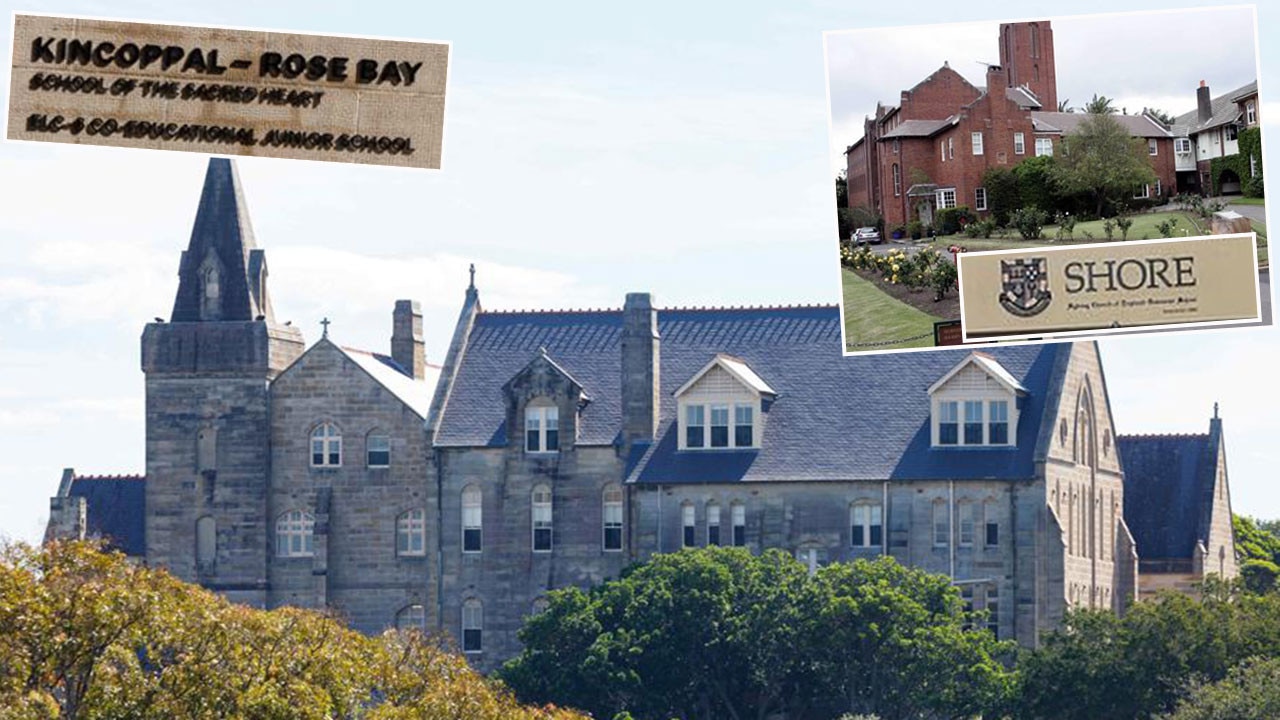Six things you must know for this year’s HSC modern history exam
Two leading tutors reveal how to tackle expected questions on everything from Nazi propaganda, the Khmer Rouge and Bolshevik power struggles.

Education
Don't miss out on the headlines from Education. Followed categories will be added to My News.
A pair of top performing former HSC students have revealed their top tips for this year’s looming Modern History exam.
Drew Ireland-Shead — who placed second in the state — and Ayra Kassam who came 15th in NSW in the subject now work at leading Sydney tutoring company Premier Tutors.
GET YOUR INTRODUCTION RIGHT
There are three key steps to setting up a strong introduction which has clarity – which is very important for markers to see:
1. Make sure that you have a clear argument that is easy to understand.
2. Walk the marker through the steps of your argument (and even the sub-arguments).
3. Offer insight into how you are going to prove your argument.
This shows that you have planned and considered your response (clarity), rather than developing it as you write.
This is where planning before you write is very important (it also saves you a lot of time, as thinking while you write can slow you down).
QUALITY IS BETTER THAN QUANTITY
Students will often focus too heavily on gathering too much evidence, at the expense of analysing evidence in detail.
All else held equal, it is more important that you go into depth with less evidence than it is to saturate an answer with too much evidence.
We see this consistently being the bottleneck limiting students from accessing the top mark range. Your goal should be to explain to the marker how and why the evidence you are working with is proving your point. If there is a quote or a source in the question prompt, then you should try and reference this in every paragraph.

YOU DON'T NEED TO GO FROM START TO FINISH
To keep your energy high for the three-hour course of the modern history paper, think about starting with your most confident section first.
The source analysis section is historically where students lose most of their marks, as you’re faced with unseen texts and are asked to use both your own knowledge and seamlessly integrate the source into your response.
Consider using your adrenaline for questions you’ve likely encountered before – the ‘National Study’ is a good starting point.
Remember, the key is to make yourself as comfortable as you can in the high-pressure setting of HSC exams.
KNOW YOUR SOURCE
Many students will simply answer in terms of content, telling the marker why this source is valuable in providing information about a certain historical period.
However, it is essential to make a judgment about the origin, perspective and motive of your source.
An example is a Nazi propaganda poster; racist undertones and a purpose to indoctrinate means that the source possesses inherent ‘bias’ and should be used in conjunction with secondary, peer-reviewed sources – this is how you evaluate the source as a piece of evidence. Determine whether the source is retrospective or written in the time-period, the nature of the source (legislation, art, historian accounts) and which perspective it has been written from.
KNOW HOW TO USE QUOTES
Your evidence should mostly consist of statistics, legislation and significant events, such as the Nuremberg Laws of 1935 or the Reichstag Fire.
Including historian interpretations can prove a valuable addition, but the marker is examining your understanding of the historical period.
As such, the historians you choose should be reinforcing your own argument. An example is the astute comparison David Christian made about whether Stalinist Russia could be deemed ‘Totalitarian’, where he assesses Stalin achieved “the sort of power … the tsarist government held”.
At times, historians are able to convey through retrospection the general sentiment of the era, and this can be crucial in reaffirming your argument. Be selective and try to aim for the 3:1 ration, where historian quotes can be a worthwhile addition to a well-developed argument.
When integrating a historian quote, try not to just use historical opinions as simple points of evidence for your argument, but to go a step further and explain what the aspects of the historians argument are and which ones you agree with and which ones you don’t and why.

LOOK FOR NUANCES IN YOUR ARGUMENT
Answering a “to what extent” question with “to a great extent” without acknowledging the limitations of that argument, aligns yourself with the 80% of the modern cohort. To stand out, I highly recommend finding nuances in your argument.
For example, when asked “To what extent were US policies responsible for communist victory in Cambodia and Laos?”, my argument was as follows:
The victories of the Khmer Rouge and Pathet Lao were heavily contingent upon US foreign involvement and aid contributions, however the US only served to intensify pre-existing issues, such as economic collapse and corruption, necessitating communist take-over.
Here, the key part of my answer to the question lies in “however”, where I acknowledge the importance of other and already-existing factors in contributing to communist victory in Cambodia and Laos. I strongly suggest constructing an argument that enables you to discuss multiple factors, not just the role of the ‘Tet Offensive’ in determining the outcome of the Vietnam War, or Stalin’s pragmatism in securing his victory in the Bolshevik power struggle. This strategy will help you apply your knowledge to every exam question whilst presenting a ‘nuanced’ and holistic argument.
The HSC Modern History exam goes for three hours and starts at 1.55pm on Friday.




